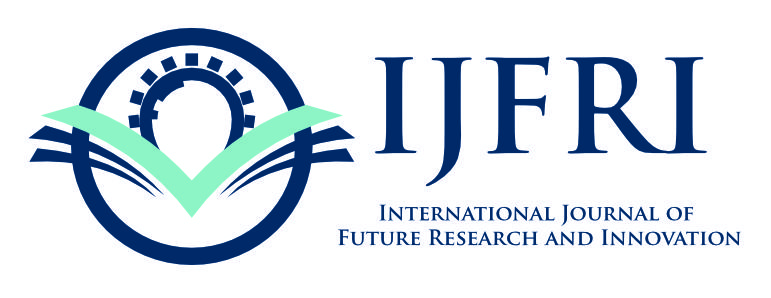The Impact of International Migration on Algerian Students' Online Linguistic Repertoire
Main Article Content
Abstract
This article explores the linguistic practices of a group of Algerian students living in the UK, using Facebook as the primary research context. While certain linguistic behaviours typically occur in spoken language, social media use has increasingly shifted toward informal, speech-like communication rather than traditional written forms. The rationale for this study lies in understanding the evolution and globalisation of language through migration and access to global communication platforms.
Employing a triangulated research approach, a sample of fifteen participants was recruited to share their Facebook activities over a three-month period. At the outset, each participant completed a detailed questionnaire to provide an identity profile, including gender, which was further examined in relation to the observed linguistic behaviours. In the final stage, interviews were conducted with a selection of the most and least active users to explore their perspectives on these phenomena and investigate potential links between identity and digital language practices.
The findings reveal a linguistic system characterised by diversification rather than homogenisation, challenging assumptions about the uniformity of language use in digital and diasporic contexts.
Article Details
Section

This work is licensed under a Creative Commons Attribution 4.0 International License.
All articles published in the International Journal of Future Research and Innovation (IJFRI) are licensed under a Creative Commons Attribution 4.0 International License (CC BY 4.0). Authors retain copyright and grant IJFRI the non-exclusive right to publish, distribute, and archive the work.
How to Cite
References
Alvarez-Caccamo, C. (1998). From 'switching code' to 'code-switching': Towards a reconceptualisation of communicative codes. In P. Auer (Ed.), Code-switching in conversation: Language, interaction and identity (pp. 29–50). London: Routledge.
Atwell, E., Sharoff, S., & Al-Sulaiti, L. (2008). Arabic and Arab English in the Arab world. Leeds: Leeds University.
Cotterell, R., & Callison-Burch, C. (2013). A multi-dialect, multi-genre corpus of informal written Arabic. Johns Hopkins University Human Language Technology, 241–245.
Dolitsky, M., & Bensimon-Choukroun, G. (2000). Special issue on codeswitching. Journal of Pragmatics, 32, 1255–1257.
Gardner-Chloros, P., & Finnis, K. (2003). Code-switching, gender and politeness: A study in the London Greek-Cypriot community. Estudios de Sociolingüística, 4(2), 505–532.
Gardner-Chloros, P., Charles, R., & Cheshire, J. (2000). Parallel patterns? A comparison of monolingual speech and bilingual codeswitching discourse. Journal of Pragmatics, 32, 1305–1341.
Harmainai, F. (2014). Code-switching and religious identity: The status of Arabic language in the eyes of non-Arab Muslims. In Proceedings of the Global Summit on Education (GSE 2014) (p. 11). Kuala Lumpur: WorldConferences.net. https://worldconferences.net/proceedings/gse2014/
Hudson, R. (1999). Sociolinguistics (2nd ed.). Cambridge: Cambridge University Press.
Jarbou, O. S., & Al-Share, B. (2012). The effect of dialect and gender on the representation of consonants in Jordanian chat. Language@Internet, 9(12), 1–19.
Lawson, S., & Sachdev, I. (2000). Codeswitching in Tunisia: Attitudinal and behavioural dimensions. Journal of Pragmatics, 32(9), 1343–1361.
Museum of London. (2005). Arab London. http://archive.museumoflondon.org.uk/RWWC/Themes/1301/1293/subject+home.htm
Myers-Scotton, C., & Jake, J. (2014). Nonfinite verbs and negotiating bilingualism in codeswitching: Implications for a language production model. Bilingualism: Language and Cognition, 17(3), 511–552.
National Association of British Arabs (NABA). (2013, May). Report on the 2011 Census – Arabs and Arab League population in the UK. http://www.naba.org.uk/library/reports/census_2011.html
Nordquist, R. (2014). Code-switching. About Education. http://grammar.about.com/od/c/g/codeswitchingterm.htm
Polit, D. F., Beck, C. T., & Hungler, B. P. (2001). Essentials of nursing research: Methods, appraisal, and utilization (5th ed.). Philadelphia: Lippincott Williams & Wilkins.
Redouane, R. (2005). Linguistic constraints on codeswitching and codemixing of bilingual Moroccan Arabic–French speakers in Canada. In ISB4: Proceedings of the 4th International Symposium on Bilingualism (pp. 1921–1933).
Robson, C. (2002). Real world research (2nd ed.). Oxford: Blackwell Publishing.
Shafiro, V., Levy, E. S., Khamis-Dakwar, R., & Kharkhurin, A. (2012). Perceptual confusions of American English vowels and consonants by native Arabic bilinguals. Language and Speech, 0(0), 1–17.
Velasco, P., & García, O. (2014). Translanguaging and the writing of bilingual learners. Bilingual Research Journal, 37(1), 6–23.

